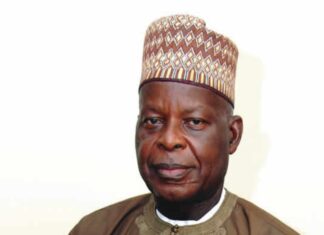Federal government of Nigeria had designated IPOB a terrorist group and outlawed the organisation and other secessionist organisations
By Emma Ogbuehi
The international noose finally tightened on the neck of the Indigenous Peoples of Biafra (IPOB) on Thursday as the United Kingdom finally designated the group a terror organisation and excluded its members from seeking asylum in their country.
The Nigerian government had designated IPOB a terrorist group and outlawed the organisation in 2017.
But some foreign countries, including UK, which IPOB leader, Nnamdi Kanu, holds its passport, did not acknowledge the declaration at the time.
But in its updated asylum policy published in May and sighted by TheNiche, the UK government explained that it took the decision as a result of the recent activities of IPOB and other secessionist organisations such as the Movement for the Actualisation of the Sovereign State of Biafra (MASSOB) in Nigeria.
According to Britain, the Nigerian authorities have since proscribed IPOB as a terrorist group while MASSOB has also been banned, but not designated the same status.
The British government stated that any person excluded from the Refugee Convention would also be excluded from a grant of humanitarian protection.
In the political context, the UK described Biafra as a loosely defined area in Nigeria’s south-east that roughly corresponds to Abia, Imo, Ebonyi, Enugu, and Anambra States.
MASSOB, it said, was identified in May 2013 by former President Goodluck Jonathan as one of the three ‘extremist groups threatening national security’.
“MASSOB, since its formation in the late 1990s, has clashed with the security forces. Some sources report that numerous individuals have been killed, wounded, and arrested during these clashes – usually during demonstrations,” the statement said.
This action of the UK government is coming four days after an army couple, who were on their way to Imo State, were gruesome beheaded.
Read Also: IPOB asks court to vacate order declaring it a terrorist group
Although the killing, which sparked nationwide outrage, was not among the atrocities the UK listed in its policy review document, the action was taken a few days after the murder.
The acts of terror by IPOB listed by UK Visas and Immigration (UKVI), a division of the British Home Office, were the invasion of an All Progressives Congress (APC) meeting in Enugu state where a party chieftain was killed; attack on an Imo Police Station where an officer was killed; killing of Anambra residents during enforcement of ”sit-at-home” order; killing of some policemen en-route to Anambra International Airport, among others.
All these attacks happened in January 2022 alone.
Last year, UKVI had released new guidelines to its decision makers on how to consider and grant asylum applications to IPOB.
But in a fresh update published on its website three days ago, UKVI made a U-turn.
“IPOB is proscribed as a terrorist group by the Nigerian government, and members of the group and its paramilitary wing – the Eastern Security Network (created in December 2020) – have reportedly committed human rights violations in Nigeria,” UKVI said in its policy notes.
“MASSOB has been banned, but is not a proscribed terrorist group in Nigeria. It too has reportedly been involved in violent clashes with the authorities.
“If a person has been involved with IPOB (and/or an affiliated group), MASSOB or any other ‘Biafran’ group that incites or uses violence to achieve its aims, decision makers must consider whether one (or more) of the exclusion clauses under the Refugee Convention is applicable.
“Persons who commit human rights violations must not be granted asylum.”
The policy directed that decision makers must also check if there has been a previous application for a UK visa or another form of leave, noting that asylum applications matched to visas should be investigated before the asylum interview.
According to the British government, establishing a convention reason is not sufficient to be recognised as a refugee.
“The question is whether the particular person has a well-founded fear of persecution on account of their actual or imputed convention reason,” it added.
For an asylum application to succeed, it said the decision-makers must consider each case on its facts, taking into account the legal status, profile, size, and organisation of the group/organisation to which the person belongs and its activities; whether a person in the UK would wish to continue their activism if returned to Nigeria (if not, why not) and whether the group/organisation has a presence in Nigeria as well as outside of the country and any evidence that it is being monitored by the government.
Other considerations include the person’s profile and political activities (including those online) and relevant documentary or other evidence; the profile and activities of family members; past treatment of the person, and evidence that their activities in the UK may have come to the attention of the Nigerian security agencies.













